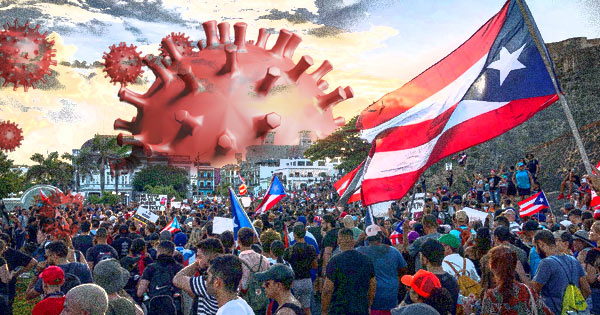With hundreds of thousands of people suddenly out of jobs in Puerto Rico, Luciano Soto, a tour guide who has not worked in nearly four months, wanted to be first in line at the Puerto Rico Convention Center, now outfitted as an unemployment office.
He showed up at 8 p.m. one night a few weeks ago, with a lunchbox full of snacks, prepared to spend the night, so that he could find out why the unemployment benefits he had applied for months earlier had never arrived. By 5 a.m., more than 400 others were also at the convention center, and many furious people were turned away.
Mr. Soto finally got his money last week, after finding three of his checks at the post office: The government had mailed them to the wrong address.
“This is going to go on for a while,” said Mr. Soto, 57, who is worried that the cruise industry he depends on will not quickly recover. “Would you take a cruise right now, even if someone gave it to you for free?”
As the coronavirus pandemic sweeps the globe, shutting businesses, killing the vulnerable and crippling economies, Puerto Rico has taken one of the country’s hardest economic hits.
Gov. Wanda Vázquez was the first governor in the nation to order businesses to close and people to stay home. Experts say that her quick action helped stave off an even worse medical crisis on the island. But the pandemic has nonetheless plunged Puerto Rico into its fifth dire emergency in three years, one that the government has struggled to manage.
Thanks largely to hurricane reconstruction, Puerto Rico’s economy had been inching toward recovery after a devastating 2017 storm and the bankruptcy of the island’s government the same year. A civic uprising paralyzed the island last summer and led to the ouster of Governor Vázquez’s predecessor. Then a series of earthquakes shook the south side of the island in January, damaging homes and buildings, sending thousands to live on the street, and closing schools across the island.
As of last week, despite guidance from the Centers for Disease Control and Prevention that everyone should be washing their hands frequently during the coronavirus pandemic, the governor announced that because of a severe drought, parts of the island would have running water only every other day for the foreseeable future. So far, the island has had 8,714 confirmed and likely cases of the virus, and 157 deaths.
Experts say this latest economic crisis has been even more difficult than the one that followed Hurricane Maria. For one thing, aid has not come pouring in from around the world, as it did after disasters of the natural kind. And with Covid-19 creating serious problems in Florida and other parts of the United States, unemployed Puerto Ricans, who fled to the mainland in droves after Hurricane Maria, have nowhere to turn. >>keep reading
